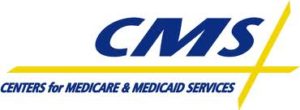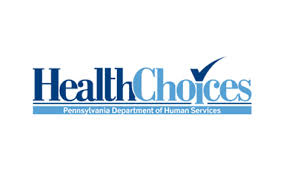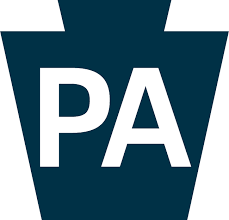COVID-19 Update: March 19, 2020
The following is a summary of the major COVID-19-related developments in Pennsylvania for March 19, 2020 as of 6:30 p.m.
Pennsylvania Administration
 Governor’s Order Closing State Businesses
Governor’s Order Closing State Businesses
Early in the evening, Governor Tom Wolf announced that he was ordering the immediate closing of what he called “non-life-sustaining businesses in Pennsylvania.” See his news release on the order here, the order itself here, and a list of types of businesses and whether they are or are not “life-sustaining” here.
Pennsylvania Department of State Licensure Exceptions and Fast Track
The Pennsylvania Department of State Bureau of Professional and Occupational Affairs, in conjunction with Governor Wolf, issued a press release announcing that the governor had granted the department’s request for a suspension to permit licensed practitioners in other states to provide services to Pennsylvanians without obtaining a Pennsylvania license during the emergency. The announcement also makes clear that “no Pennsylvania law prohibits the practice of telemedicine.” Under the exception, out-of-state practitioners must:
- Be licensed and in good standing in their home state, territory or country.
- Provide the Pennsylvania board from which they would normally seek licensure with the following information prior to practicing telemedicine with Pennsylvanians:
- their full name, home or work mailing address, telephone number, and email address; and
- their license type, license number or other identifying information that is unique to that practitioner’s license, and the state or other governmental body that issued the license.
The full text of the document can be found here.
Pennsylvania Department of Drug and Alcohol Programs Authorizing Additional Take-home Opioid Treatment Medicine
On March 16, the federal Substance Abuse and Mental Health Services Administration provided additional guidance to Opioid Treatment Programs. Today, Pennsylvania’s Department of Drug and Alcohol Programs issued a licensing alert taking advantage of that guidance to suspend the prohibition on patients receiving a greater-than-two-week supply of medication to take home. The full text of the document can be found here.
 Pennsylvania Department of Human Services Shares COVID Response Overview
Pennsylvania Department of Human Services Shares COVID Response Overview
On Tuesday, March 17 Pennsylvania’s Department of Human Services (DHS) hosted an invitation-only call to provider DHS stakeholders with an overview of its actions related to COVID-19. Last night DHS issued a summary of that presentation. Please find that summary attached.
Pennsylvania Department of Health Daily Update
- The Secretary stated that the Department of Health (DOH) is working with hospitals to evaluate whether elective procedures are necessary and to delay them as appropriate.
- DOH has directed hospitals to update their emergency plans to include COVID-19 and to implement those plans as of 11:59 tonight.
- Although the number of diagnoses continues to rise, hospitalizations in Pennsylvania are on par with nationwide statistics at roughly 10 percent of the diagnosed population.
- The Secretary is urging small businesses to comply with the social distancing protocols and called on small business owners to contact the Department of Community and Economic Development to identify financial resources to assist them through this period.
- She reminded citizens that limiting individual exposure does not require a mask, stating that the limited personal protective equipment supplies are best used by frontline responders.
Pennsylvania Legislature
 The following summary of PA legislative actions was compiled by Cynthia Fernandez of Spotlight PA and Gillian McGoldrick of Lancaster Online.
The following summary of PA legislative actions was compiled by Cynthia Fernandez of Spotlight PA and Gillian McGoldrick of Lancaster Online.
Limiting Disaster Powers
When Gov. Tom Wolf declared a disaster emergency on March 6, he was able to claim expansive powers. Rep. Russ Diamond (R., Lebanon) plans to issue a resolution to terminate Wolf’s COVID-19 emergency declaration “if the need arises.”
Privacy
Sen. Doug Mastriano (R., Franklin) is drafting a resolution that would call on the federal government to suspend privacy regulations for people who have tested positive for COVID-19. There should be “full disclosure of anyone who came within immediate contact of any contaminated citizen,” Mastriano said in a statement, “until the COVID-19 crisis passes.”
Pa. Coronavirus Cases
As of March 18, 2020, the Pa. Department of Health reports that there are 133 positive cases of COVID-19 in Pennsylvania.
Total cases/Deaths
VIEW THE INTERACTIVE MAP HERE: https://www.pennlive.com/news/2020/03/evictions-student-loans-pssas-and-more-what-pa-lawmakers-are-proposing-in-response-to-the-coronavirus.html
Rent
Lawmakers are drafting a bill to limit landlords’ right to evict tenants when a governor declares a state of emergency. The measure, from Rep. Mary Isaacson (D., Philadelphia) and Rep. Summer Lee (D., Allegheny), would “provide an exemption from eviction for workers who are unemployed, separated from their employment, or unable to find employment.”
Schools
Sen. Andy Dinniman (D., Chester) and Sen. Scott Martin (R., Lancaster) are drafting a bill that would cancel the state PSSA and Keystone exams for the remainder of this school year. The measure would also require the state Department of Education to waive federal testing requirements.
Dinniman is also drafting a measure that would give school districts authority to deliver online instruction until the end of the academic year.
Martin has proposed a bill that would require colleges and universities closed because of COVID-19 to refund all fees paid in advance, including room and board. The prorated refund would only apply from the date the institution shuttered through the end of the semester.
Sick Leave
Rep. Joe Hohenstein (D., Philadelphia) and Sen. Larry Farnese (D., Philadelphia) want to require paid sick leave for any workers left out by a federal bill on its way to President Donald Trump’s desk, which is limited to workers who need to care for their children. The legislation could leave 19.3 million workers without any sick pay, the Washington Post reported.
The state legislation would also require employers to reinstate workers when they return from leave.
Small Businesses
To lessen the impact on small businesses, Sen. Tom Killion (R., Chester) plans to introduce legislation that would direct table game revenue to the Department of Community and Economic Development to create zero-interest loans.
Reps. Valerie Gaydos (R., Allegheny) and Jared Solomon (D., Philadelphia) also plan to introduce legislation to create low-to-no interest loans to help small businesses survive. The bill will outline two types of loans: one will be short-term funding to meet payroll and overhead expenses; the other will be for “long-term resiliency” to help businesses recover over time.
Student Loans
A measure by Rep. Malcolm Kenyatta (D., Philadelphia) would allow a 60-day grace period for repayment of student loans issued by the Pennsylvania Higher Education Assistance Agency.
- READ MORE: U.S. courthouse in Harrisburg closed after agent assigned there tests positive for coronavirus
Taxes and Filing
Rep. David Rowe (R., Union) and Rep. Frank Ryan (R., Lebanon) are writing a measure that would suspend sales and personal income tax collection until the disaster declaration is lifted.
The IRS will keep its tax-filing deadline as April 15, but the U.S. Treasury announced Tuesday it will waive interest and penalties for 90 days after that date. Rep. Joe Ciresi (D., Montgomery) plans to introduce legislation that would apply a 60-day extension for Pennsylvanians to file state income taxes when the state is under a disaster declaration.
Voting
All Pennsylvanians are now eligible to vote by mail. Rep. Kevin Boyle (D., Philadelphia) wants to encourage that by mailing all voters that kind of ballot ahead of the April 28 primary.
Rep. Dan Williams (D., Chester) plans to introduce legislation to allow elections officials to open votes submitted by mail before the polls close. House Majority Leader Bryan Cutler (R., Lancaster) previously said this is a part of discussions with Gov. Tom Wolf to “clean-up” a comprehensive voting reform bill passed last year.
Workers’ Rights
A proposed state Senate bill would support workers while quarantined or in isolation during a public health emergency. Sen. Steve Santarsiero (D., Bucks) said in a memo to his colleagues that Pennsylvania does not have a law that addresses whether an employer can fire a worker under these conditions during a state of emergency.
A measure by Rep. Ed Neilson (D., Philadelphia) would provide unemployment compensation for people who have been ordered to quarantine or isolate because of the coronavirus. His bill would not offer extended benefits to people who used paid time off or paid sick days during quarantine or isolation.
Federal
 CMS Catastrophic Plan Coverage Guidance
CMS Catastrophic Plan Coverage Guidance
Catastrophic coverage plans are generally prohibited from covering essential health benefits until a covered individual has met its deductible. The U.S. Department of Health and Human Services has issued a notice informing plans that it will not enforce this provision as it relates to insurers amending their plans to provide pre-deductible coverage for services related to the diagnosis and treatment of COVID-19. The full notice is available here.
CMS Medicaid and CHIP FAQ Released
The guidance describes the authority states have generally to respond to emergencies but has also been updated as of March 18 to include additional guidance specific to the response to COVID-19. The updates generally provide additional clarity around telehealth.
There are also new sections on managed care flexibilities and 1115 waiver flexibilities, again generally focused on limiting the spread of person-to-person contact through the use of telehealth, remote monitoring, etc. It is worth mentioning that this is federal guidance for state Medicaid programs so it describes what is possible but does not describe the actual conditions in any particular state.
The FAQ document is available here.
CMS Elective Surgery Guidance
CMS released guidance to limit non-essential adult elective surgery and medical and surgical procedures, including all dental procedures, in an effort to conserve critical resources such as ventilators and Personal Protective Equipment (PPE). Decisions remain the responsibility of local health care delivery systems, including state and local health officials, and those surgeons who have direct responsibility to their patients. To help with that decision-making, CMS offered a tiered framework of procedures that should be considered for postponement, taking into account the location (outpatient department, ambulatory surgery center, or hospital), the hospital’s COVID-19 patient census, the patient’s acuity, and more. Click here to read the full guidance. Click here to read the CMS press release.
HRSA Data Collection Activities
The Health Resources and Services Administration (HRSA) will not be going through notice and comment periods for data collection activities for the remainder of the emergency. Under this authority, HRSA launched an information collection effort to support the Trump administration’s response to the COVID-19 pandemic, surveying HRSA-funded health centers on their involvement in the COVID-19 response, including whether they are offering diagnostic tests. The agency will have to comply with relevant provisions within 30 days of the end of the emergency declaration. The announcement is available here.
CDC Alters Timeline to Implement New ICD-10 Code for Coronavirus (see attached)
The Centers for Disease Prevention and Control (CDC) is taking the unprecedented step of invoking the National Emergencies Act to supersede the schedule for updating the ICD coding set defined within HIPAA. Under this authority, CDC is establishing an effective date of April 1, 2020 for the new code as opposed October 1 date that would have been required under the normal statutory update schedule. The full text of the announcement is available here.
Resources to Consult
Pennsylvania Department of Human Services
Pennsylvania Department of Health
Pennsylvania Emergency Preparedness Guide
Centers for Disease Control and Prevention
 The following is a summary of the major COVID-19-related developments in Pennsylvania today.
The following is a summary of the major COVID-19-related developments in Pennsylvania today. New Guidance From the State
New Guidance From the State Included in this month’s edition are articles about:
Included in this month’s edition are articles about: United Healthcare, with 57,000 Medicaid members in the city, has placed six homeless members with multiple health problems into apartments in the city – it plans to add four more – and is spending between $1200 and $1800 a month on rent and wrapround services. Its theory: with one percent of the population accounting for 22 percent of annual health care spending nation-wide, helping some of that one percent could improve lives while saving a great deal of money.
United Healthcare, with 57,000 Medicaid members in the city, has placed six homeless members with multiple health problems into apartments in the city – it plans to add four more – and is spending between $1200 and $1800 a month on rent and wrapround services. Its theory: with one percent of the population accounting for 22 percent of annual health care spending nation-wide, helping some of that one percent could improve lives while saving a great deal of money. Block grants, through what has been named the Healthy Adult Opportunity program, also pose a threat, with Fitch explaining that
Block grants, through what has been named the Healthy Adult Opportunity program, also pose a threat, with Fitch explaining that The proposed budget, presented to the state legislature earlier this week, includes the following new initiatives:
The proposed budget, presented to the state legislature earlier this week, includes the following new initiatives: In a news release, Governor Wolf said that
In a news release, Governor Wolf said that Authorization for delaying the cut in allotments to the states, which would have resulted in reduced Medicaid DSH payments for many hospitals – including private safety-net hospitals – would expire on May 22. Congress is expected to address Medicaid DSH, along with surprise medical bills, the price of prescription drugs, and other health care matters, before that time.
Authorization for delaying the cut in allotments to the states, which would have resulted in reduced Medicaid DSH payments for many hospitals – including private safety-net hospitals – would expire on May 22. Congress is expected to address Medicaid DSH, along with surprise medical bills, the price of prescription drugs, and other health care matters, before that time.